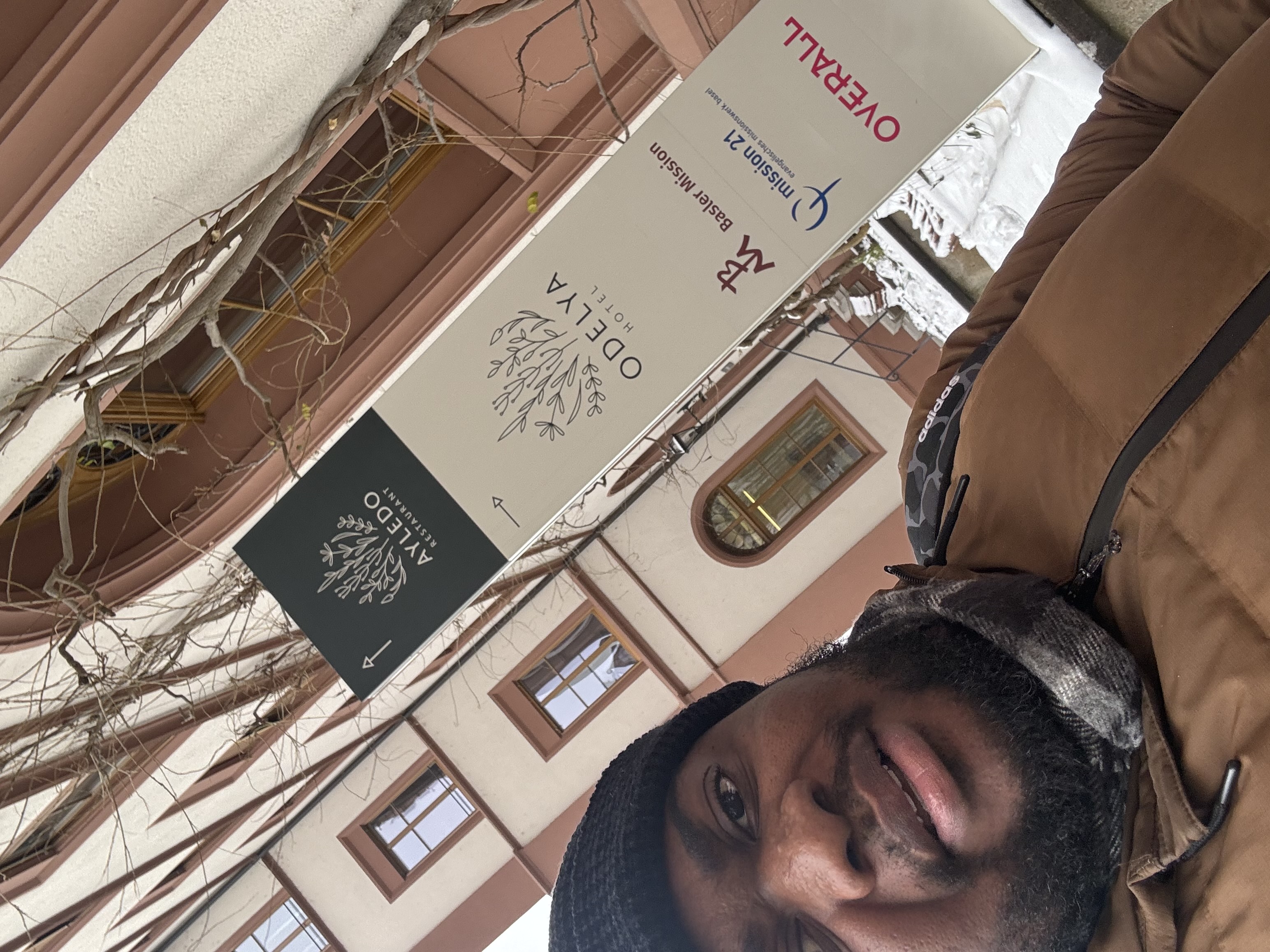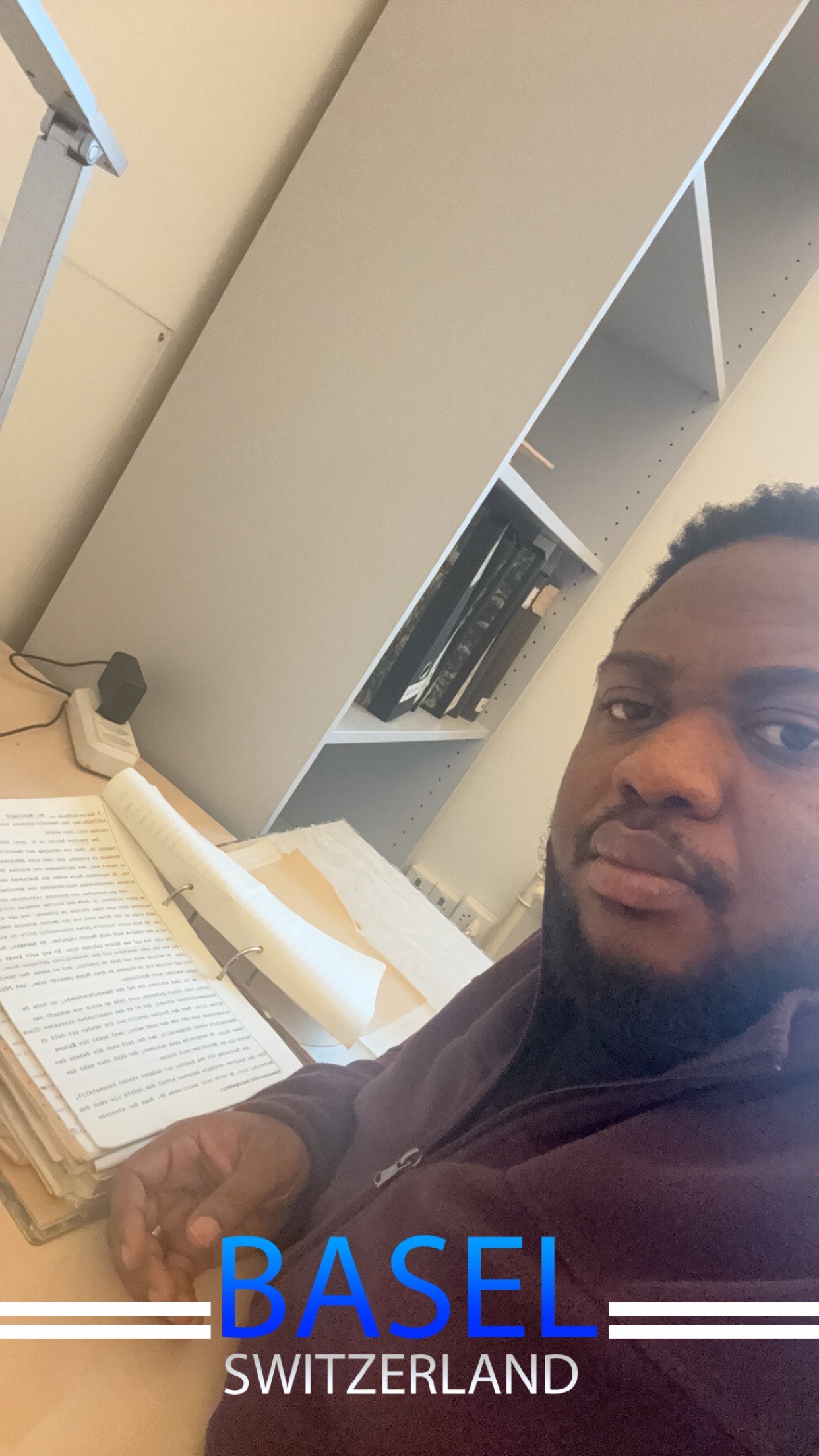George Osei
PhD candidate, Department of History
Guiliano Fellow, Fall 2023
"Harm or Heal? A History of Witch Camps and Humanitarianism in Ghana, 1927-2020"
With the generous support of the Edward Guiliano Global Fellowship, I spent two weeks
investigating several correspondence, reports, and manuscripts of missionaries who
served in Ghana from the late 19th century to the middle of the 20th century. My dissertation
explores the broader history of witchcraft through a focus on the origins and evolution
of Ghana’s witch camps—isolated communities for people accused of practicing witchcraft.
It also examines critically the evolution of humanitarian organizations and their
activities in these witch camps.
Available oral tradition suggests that traditional healers in the Gold Coast (later
Ghana) started what is now known as witch camps in the 18th century. But in the British
colonial period (1874-1957), politics of witchcraft accusations became more complicated.
When British colonial officials gave authority to indigenous Gold Coast leaders to
try cases of witchcraft in 1927, persons accused of witchcraft were forced to consult
traditional healers called witch doctors to prove their innocence. European missionaries
saw this as primitive and an affront to Christianity which resulted in disputes with
Gold Coast leaders. Foreign missionaries’ conflict with African traditional healers,
sometimes abetted by British authorities and indigenous Christians in the period of
colonial rule led to the isolation of people in the camps. The late colonial period
and the years shortly after independence (1947- 1966) witnessed calls for the protection
of human rights. This resulted in the creation of not only the Universal Declaration
on Human Rights (UDHR) but also the setting up of the International Covenant on Civil
and Political Rights (ICCPR) and the International Covenant on Economic, Social and
Cultural Rights (ICESCR) .This turn in world politics prompted the rise of international
and local NGOs like Action Aid, World Vision, and church groups in the latter twentieth
century. Another change came as these humanitarian groups in Ghana turned their attention
to persons accused of witchcraft because of widespread reports of abuse.
For the research in the Basel Mission Archives, I focused on investigating the documents
of missionaries which form part of the core chapters of my dissertation. This allowed
me access to records like quarterly reports of the Basel Mission. These documents
provide a window into efforts by missionaries to spread the gospel and plant churches
and also throw light on Gold Coaster's confrontation with a new religion. This is
important in framing the larger political and social contexts in which the practice
of witchcraft became highly contested among or between Ghanaians and Europeans. Additionally,
I found a pamphlet produced by the Christian Council condemning local people who believe
in Tigare– an indigenous spiritual symbol missionaries referred to as a fetish. This
pamphlet presents an important insight into the persistence of traditional beliefs
and practices. Furthermore, documents in the archive like publications from the International
Missionary Council on the Gold Coast enrich my study by throwing light on why missionaries
termed local belief as pagan thereby categorizing it in the realm of witchcraft. It
provided crucial clues on how this was done and what missionaries hoped to achieve
from it.
My research in Basel did not end in the Basel Mission Archives, I took the opportunity
to also visit the Basler Afrika Bibliographien. Among the collections in the library
was “P134”. This folder comprises documents compiled by Hans Werner Debrunner during
his many years researching African history and ethnology, the history of European-African
relations as well as missionary history and biographies of Swiss in Africa. Debrunner
wrote some of the most extensive works on religion and beliefs in Ghana including
his seminal work Witchcraft in Ghana published in 1959. Debrunner's collection provided invaluable insights into other
related areas of my project. I found documents and photographs that depicted local
forms of worship and veneration of spiritual symbols. These documents illuminate the
lives and activities of local spiritual leaders.
I spent my time outside the archives exploring other parts of Switzerland and neighboring
countries. I visited Bern and Geneva and cities in France and Germany like Nancy and
Berlin. My most memorable trip was when I visited the Brandenburg Gate in Berlin where
I got to experience for the first time an important landmark in German history.
In all, this research trip provided me with important information that will be used
in shaping not only my future dissertation but also for presentations at the upcoming
Stony Brook History Graduate Conference and the African Studies Association Conference
in September and December 2024 respectively.

The Guiliano Global Fellowship Program offers students the opportunity to carry out
research, creative expression and cultural activities for personal development through
traveling outside of their comfort zone.
GRADUATE STUDENT APPLICATION INFORMATION
UNDERGRADUATE STUDENT APPLICATION INFORMATION
Application Deadlines:
Fall deadline: October 1 (Projects will take place during the Winter Session or spring semester)
Spring deadline: March 1 (Projects will take place during the Summer Session or fall semester)
Please submit any questions here.
